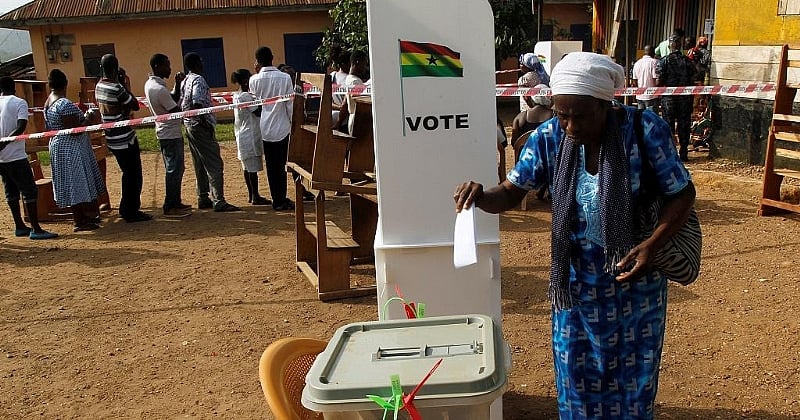In Paga, a town within the Kassena-Nankana West District of the Upper East Region of Ghana, fears surrounding the upcoming December 7 elections have been voiced by many young residents. In light of the violence witnessed during the 2020 presidential and parliamentary elections, these young individuals are understandably concerned about the potential for similar occurrences in the upcoming vote. Their trepidation is reflected in their desire to avoid participating in person at polling stations, opting instead to remain at home to follow the events on television, which they believe could be a safer alternative. This sentiment was particularly apparent during a recent gathering at the ‘Royal Ghetto’ base, where young people shared their anxieties about the election and the possible escalation into violence.
The National Commission for Civic Education (NCCE) sought to address these concerns by organizing an engagement session with local youth, emphasizing the importance of active participation and maintaining peace during the electoral process. The theme of the interaction was “Together We Can Build Ghana, So Get Involved,” highlighting the role of the youth in fostering a stable electoral environment. Mr. James Abdulai Ayaala, the Regional Director of the NCCE, underscored the critical role that young people play in elections, particularly during tumultuous times when tensions can lead to unrest. His message was clear: the youth’s involvement is crucial for ensuring a peaceful election and the overall health of the democratic process.
Amidst the conversations, concerns about potential violence and the need for peaceful expressions of political opinions were articulated by both the youth and NCCE officials. Mr. Ayaala cautioned that the jubilant celebrations following election results could inadvertently provoke hostility among supporters of losing candidates. He advised the youth on maintaining decorum when expressing their joy or disappointment, urging them to celebrate away from polling stations to prevent any possible escalation of tensions. Mere expressions of happiness could easily offend those on the losing side, resulting in conflict, and thus an awareness of the implications of such actions became paramount.
Mr. Robert Dampare, the District Director of the NCCE, echoed this sentiment, urging young people to remain hopeful and actively participate in the electoral process while making a conscious effort to prioritize peace. He emphasized that elections do not have to be violent and that the youth must reject attempts by politicians to incite violence for their own gain. The engagement sought to instill confidence in the youth that their participation in the electoral process is legitimate and that they should exercise their right to vote without fear.
In addition to the psychological barriers posed by the fear of violence, there also exists a concern about the potential manipulation of vulnerable youth by unscrupulous politicians. Mr. Dampare warned about the tactics some politicians may employ, such as offering financial incentives to incite violence. This serves as a reminder that the youth carry a significant responsibility, not only for their own safety but also for the broader implications of their actions on the democratic process. Staying away from individuals attempting to buy their loyalty with money is vital for ensuring a peaceful election environment.
In summary, the dialogue aimed at reassuring the youth of their vital role in the electoral process, underscoring the importance of peace and responsible participation. The NCCE’s engagement at the Royal Ghetto base highlighted the shared commitment to a peaceful and democratic Ghana. While fears surrounding violence still loom over the upcoming elections, the concerted efforts of local organizations and engaged citizens reflect a determination to foster a culture of peaceful electoral participation, encouraging young people to take part despite their fears. Ultimately, this initiative seeks to empower the youth, instilling in them the belief that their involvement is not only important but also safe within a framework of mutual respect and understanding.


